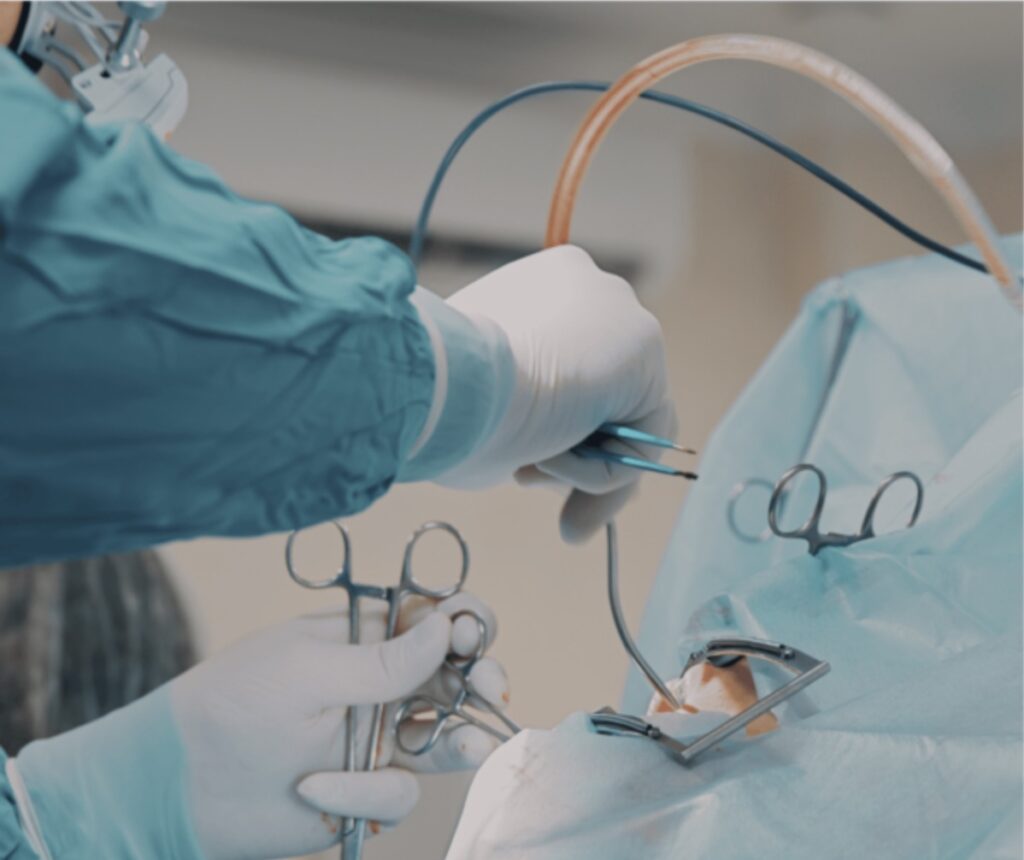Just hearing the word “surgery” can make people anxious. This is particularly true if the surgery they will have is on their face or in their mouth, like oral surgery.
One effective way to decrease the anxiety about oral surgery is knowing what to expect. When you know what will happen, it allows you to prepare yourself both physically and mentally, which greatly helps reduce stress levels.
Preparation is always key to a smoother and less stressful dental procedure — both on the part of the patient and the dentist or oral surgeon.
What Counts as Oral Surgery?
Oral surgeries are fairly common. Many familiar dental services, such as impacted wisdom tooth extractions, are all categorized as oral surgery. Other common types of oral surgery include:
- Dental implants
- Soft palate implants
- Periodontal or gum surgery
- Dental bone grafting
- Corrective jaw surgery
These procedures are generally fast outpatient procedures. Even surgeries that require general anesthesia allow patients to go home at the end of the day.
What Happens Before and During an Oral Surgery?
In most cases, oral surgeries are performed in the dental clinic’s surgical office. Below are a few things you can expect both before and during the surgery.
Pre-surgery Preparations
Once the surgery is scheduled, the oral surgeon provides patients with pre-surgery preparations or pre-operative instructions. These will depend on the type of surgery and anesthesia that will be used.
Patients who are receiving general anesthesia are advised not to eat or drink anything for a minimum of eight hours before the time of surgery. However, for local anesthesia, you may be allowed to eat a light meal a few hours before the procedure.
Another important thing to prepare for the surgery is transportation. Since patients are generally disoriented following the surgery, patients need to plan ahead and have someone ready to drive them home from the dental clinic.
Clothes and Comfort
Prior to the day of the procedure, your dentist or oral surgeon will give you an estimate of how long the procedure will take.
Take these into consideration to ensure your comfort throughout your surgery. It is highly recommended to wear loose and comfortable clothes for your appointment. This is especially important if you expect your oral surgery to take a few hours.
Anesthesia
All oral surgery patients receive a form of sedative to ensure they feel no pain. It is also given to help ensure they stay calm, relaxed, or even asleep throughout the procedure.
The oral surgeon or a dental anesthesia assistant will administer your choice of sedation. Anesthesia options typically include:
- Local anesthesia
- Nitrous oxide sedation
- Intravenous (IV) or oral medications
- General anesthesia
Easier or simpler oral surgery procedures rarely require general anesthesia, though it may be an option if the patient has low pain tolerance. Your oral surgeon will have discussed your choice of sedation or anesthetic at length during the pre-surgery consultations.
Time
Depending on the procedure and its complexity, oral surgery may take anywhere between less than an hour to a couple of hours. For example, the simple extraction of a wisdom tooth may take just 30 minutes. Meanwhile, corrective jaw surgery can take two to three hours.
Disorientation
It is common for patients to feel disoriented upon waking up after their surgery due to the effects of the anesthesia.
While some oral surgical procedures may not take a long time, some patients may need some time to recover before heading home. This is especially true if they were administered strong anesthesia.
In general, patients are moved to a separate recovery room where they can sleep until the sedative has worn off. Waking up in a different room can potentially add to the disorienting feeling as well.
Post-surgery Recovery at Home
After the surgery, you can expect to receive a detailed list of post-operative care instructions from your dentist. It is wise to follow these reminders to ensure proper healing of your wounds and a reduced risk of infection or other complications.
During your home recovery, you may experience the following:
- Swelling of the gums or jaw
- General discomfort and pain, especially once the anesthetic wears off
- Limited jaw function or movement
- Bleeding, usually up to 48 hours post-surgery
Ice packs will generally take care of any post-op swelling. Meanwhile, gauze or moistened tea bags are effective for minimizing bleeding. Over-the-counter pain medication is usually enough to manage any pain.
Receive Top-Quality Oral Surgical Care
If you require oral surgery, you can trust Green Valley Oral Surgery to take care of you and your oral health. Our team will make sure you feel fully prepared, relaxed, and comfortable throughout your oral surgery experience — from your first consultation to your recovery period.
Call our office at (707) 343-4818 or schedule an appointment with us online.
